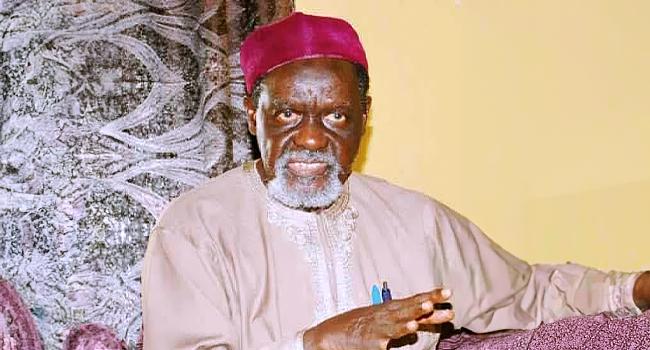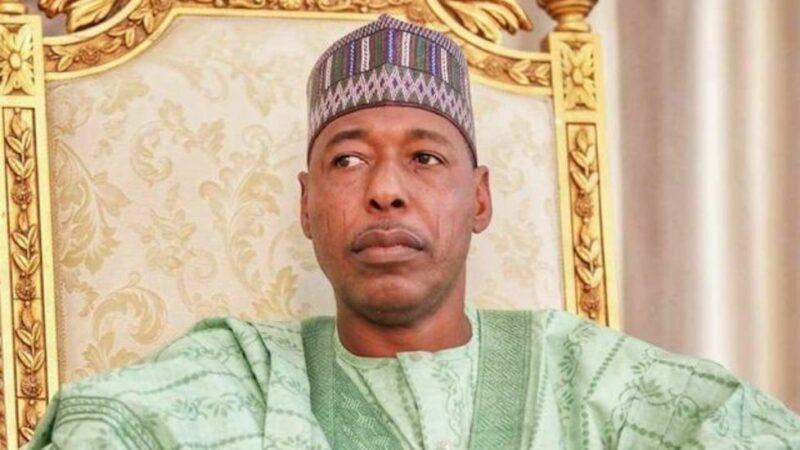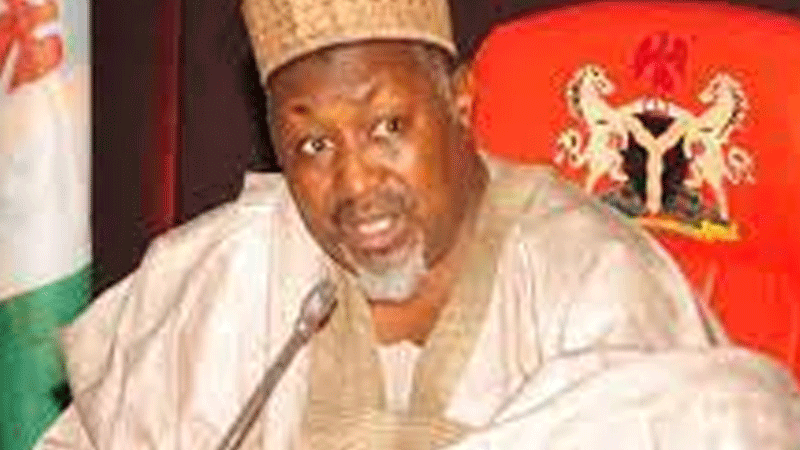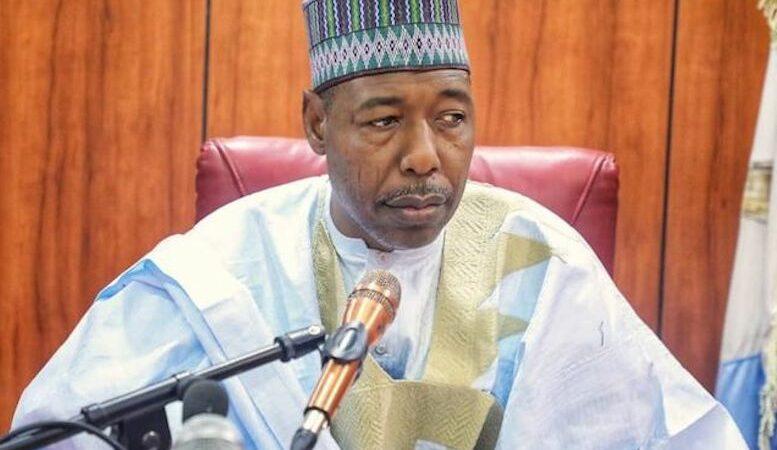Chidi Amuta
In less than 36 hours in the past fortnight, Borno State governor, Babagana Zulum, was the target of two gruesome assassination attempts. In a frightening video that has been circulating on the social media, the firefight between the vicious armed attackers in ambush and the governor’s security personnel was so intense and obviously came as lightning surprise that the vehicles in the convoy became shields of armour for security guards and the VIPs in the entourage. A figure of a helpless man crawling for safety underneath one of the vehicles is rumored to be the governor himself in a desperate crawl for dear life. In this age of truthful lies and alternate facts, I have no way of ascertaining the veracity of this.
A concerted military operation targeted at the convoy of a sitting governor with the obvious objective of taking him out or down is a poster indicator of abysmal insecurity. If a governor with all the visible indicators of state security and maximal coercion can be so insecure, why would ordinary folk not be mortally afraid. That these attacks took place in a state that is practically a theatre of active military operation provides an obvious suspect: Boko Haram. The specific location is Borno state but the target is clearly the entire country now caught in the throes of spiraling insecurity.
The attacks on governor Zulum are first and foremost assassination attempts. Mr. Zulum is primarily the political leader of Borno State, a sub sovereign territory that is being actively contested by a rival armed force. In that context, the location makes Zulum a legitimate military target. But because the man is primarily a politician, the field of suspicion in these attacks must sweep beyond the purely military context of Boko Haram. The urge to explore conspiracy scenarios is heightened by the fact that Zulum alone has probably experienced the highest number of ambush assassination attempts in the over a decade of Boko Haram during which governors have been coming and going. Mr. Zulum is on record as having excoriated both the military and the federal authorities for the inefficiencies in the anti insurgency operations in his state. The questions, therefore, remain: Who wants Zulum dead and why?
Since his election, Governor Zulum has functioned more or less like a war time governor. In this regard, he has shown exemplary leadership in terms of his commitment to the relief and resettlement of the many citizens of the state displaced by the Boko Haram insurgency. Remarkably, he has not allowed the obvious dangers of governing a state that is largely a war zone to deter him. On repeated occasions, he has shown open reservations about the conduct of soldiers on security duties in civilian centres of the state. On one occasion, he took open exception to soldiers extorting motorists at a major highway checkpoint. Such encounters may not have earned him too many friends in sensitive places. But the governor seems self assured in his moral posture. It is significant that the recent ambushes on his convoys took place on his way from an IDP resettlement event.
From the perspective of the Boko Haram insurgency, the governor of Borno state, the key operational theatre, would be a prize target for political and strategic reasons. It will register the terrorists as effective and active contestants for political control of a big slice of Nigeria’s sovereign space. If they can take the governor out, it will convince their followership that their dream of a caliphate around the Lake Chad basin is indeed feasible.
Secondly, a successful strike on Zulum will put a lie to the bogus and consistent bluff of the Nigerian state and its security apparatus that the anti-Boko Haram war is practically over. An insurgent force that has been defeated does not launch such daring operations in rapid succession even as a roving guerilla movement. Nor would a dying terror group be so bold as to choose a high value target that could expose them to great harm.
There has been enough recent activity in that theatre to reaffirm that Boko Haram is still very much alive and well. In the last one month, Boko Haram ambushes have claimed the lives of many soldiers including the brilliant force commander, Colonel Dahiru Bako. Obviously, between the propaganda of the authorities and the actual situation on the ground, there would seem to be a disconnect which could endanger the lives of the unsuspecting.
At the level of basic security and VIP protection, the movement of a state governor is not exactly a silent or sudden affair. Even at short notice, it would be planned and in such a hostile environment, the security detailing and route scoping would be known by the experts. Such planning would be conducted in close collaboration with relevant military authorities in charge of the theatre. The fact that on both occasions, the ambushes precisely targeted the governor’s convoy at weak points on those routes should help investigators determine where the intelligence leakage in the governor’s security cover lies. In this age of cell phones and all manner of electronic positioning devices and tools for surveillance, detection and exchange of information among devious collaborators should be predictable.
We live in a country that has fast degenerated into a free laboratory for all forms of violent excursions. Systemic instability has fed casual violent escapades by non -state actors. These days, there is no shortage of freelance gunmen, militants, bandits and assorted transactional trouble makers for rent on the cheap.
In such a Hobbesian terrain, laying ambushes for the convoys of governors and other VIPS could graduate into a macabre fad, a veritable paradigm for imitation among the diverse armed factions roaming our national space. In the countdown to another “do-or-die’’ general election in 2023, military style ambushes for top political contestants could become an attractive business proposition for contract bandits.
The more frightening dimension of the Borno crisis is the reality that the insurgency may have become part of the partisan fray in Borno state. Boko Haram has been around for quite a while.
It could not possibly be insulated from the politics of the state. People are mindful of the fact that it was a disagreement between the late Mohammed Yusuf, founder of Boko Haram, and the then state governor Ali Modu Sheriff that sparked off the insurgency. There seemed to be an understanding then that Mr. Yusuf was free to propagate his sect and canvass his theology without disturbing the peace or challenging the state. Trouble apparently started when the cleric trespassed into political territory by weaponizing his followership against the governor and his politics. He was beginning to steer his movement in the direction of Hamas and Hezbollah, competing with government for the hearts and minds of the people by providing copeting social services. The governor ordered Yusuf’s arrest and detention. He later died in police custody under questionable circumstances, a development that sparked off anger among his followers. They later took to Sambisa and other forests never to return in peace. From there they launched Boko Haram, as a jihadist movement with clear anti-Western and anti government agenda. The rest is history.
The possibility that the Nigerian tradition of armed politics could now find Boko Haram a ready source of armed thugs and a ready fighting force is clear and present. Any political faction supported by Boko Haram in Borno politics can be assured of a ready supply of armed thugs.
Given this background, we cannot discountenance the political implications and connectedness of the military security situation and the contest for political pre-eminence in Borno state. It becomes impossible also to disconnect the Boko Haram insurgency from a nasty political tradition in the state which has pitted fundamentalist sectarians against the secular state.
Across the rest of Nigeria, there is now an abiding fear that the Boko Haram insurgency and the war against it have become a veritable source of small arms and unofficial weapons training for criminals disturbing the peace around the country. No one knows how much of this information has been scientifically verified and documented by our security establishment. What is undeniable however is that the Boko Haram war has lasted this long because it has since become a major revenue and expenditure sub -head in our national budget. Naturally, wherever there is consistent government revenue and expenditure, business opportunities emerge, an industry germinates, vested interests organize and sooner than later, an industry is in place.
In other words, there is presently an active conspiracy theory that some vested interests are in no hurry for Nigeria to exit the war. People point to the fact that while it took the Nigerian military a mere two and half years to end the Nigerian civil war, the Boko Haram war has lingered for over a decade. Yet, we have more advancements in training and weaponry plus, overwhelming international support based on the acknowledgment that Boko Haram is an active part of the global terror network. Most intelligence estimates have projected that the Boko Haram insurgency ought to have ended in less than five years. But it has lingered as both political foot ball and an ‘industry’ in its own right.
Nigeria’s Defence Headquarters has in the course of this campaign acquired formidable PR and political communication savvy and clout. It insists that this is no symmetric waefare. It is an unconventional war, being fought against an unconventional enemy with training and support from hardened terrorist movements outside across international borders in a globalised information age.
It is of course in the interest of our defence and security establishment to continue assuring the political leadership in Abuja that Boko Haram has been ‘liquidated’, ‘practically defeated’, ‘neutralized’ or ‘substantially degraded’. Just words and empty phrases. But of course Mr. Shekau, the leader of the terrorists movement, has in the process acquired more than the proverbial nine lives. He has been variously ‘killed’ over and over and has become the only Nigerian villain known to have died and resurrected so many times! Perhaps Mr. Shekau’s ‘immortality’ is the boldest indication of the altered face of Nigeria’s military prowess.
Here then lies the ultimate significance of the travails of Governor Zulum. These harrowing experiences are perhaps the next level in the descent of our nation into hopeless insecurity and foreseeable anarchy. The Zulum attacks are in some ways a metaphor for the current state of internal security in the nation. Today it is Borno state and its governor. No one knows for whom next the bleak bell will toll. This is the reality of vicious insurgency. It is the face of a direct affront on authority, officialdom and sovereignty. Above all, it is a stark daily reminder that Nigerians are now in a place where the safety of citizens can no longer be taken for granted.





